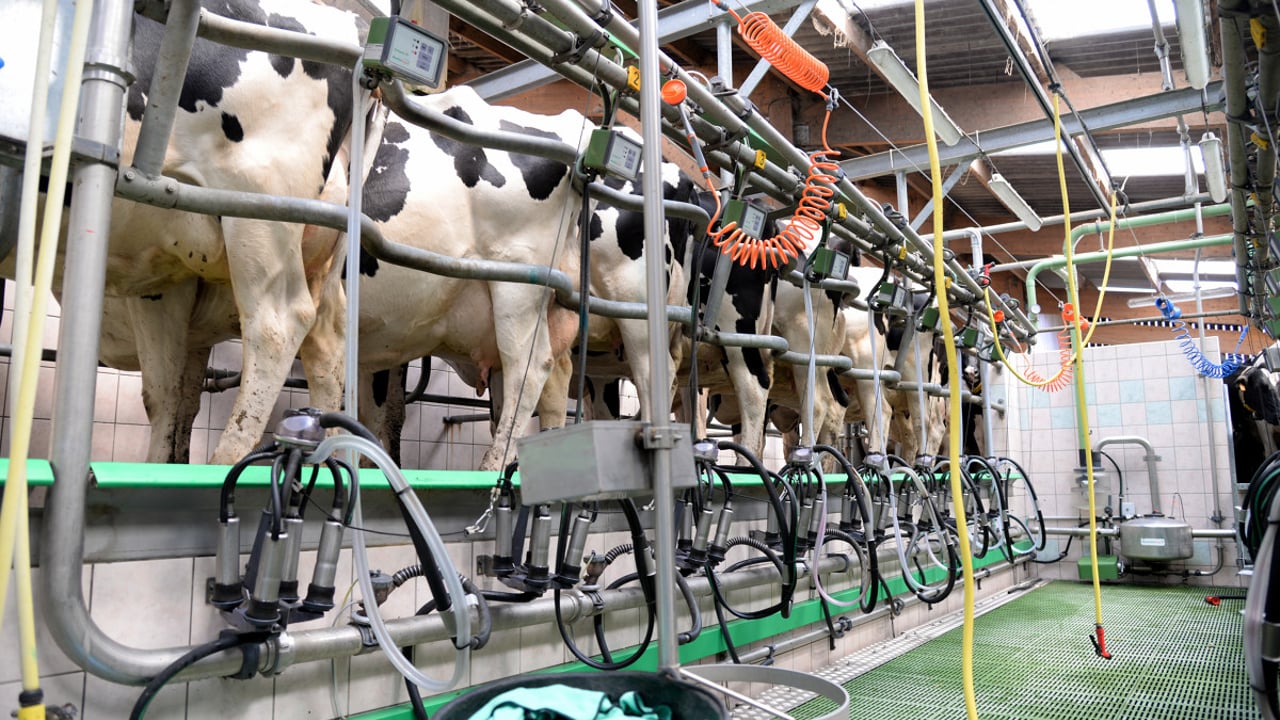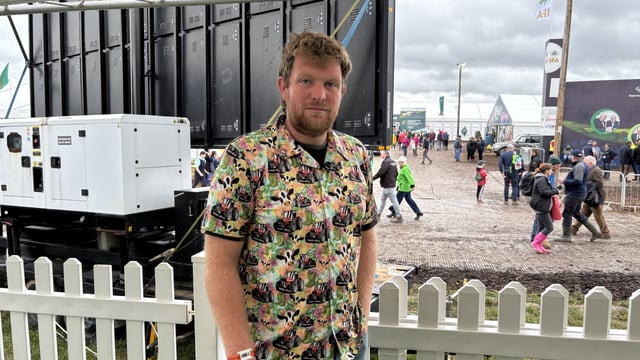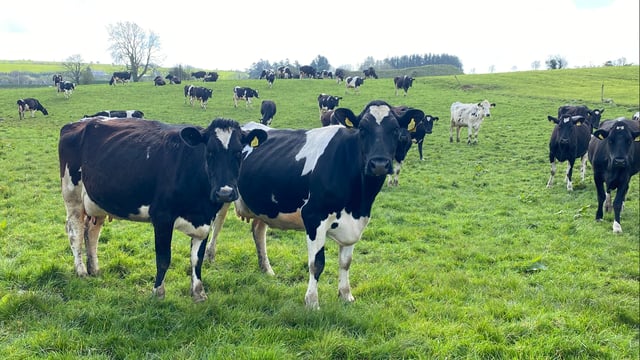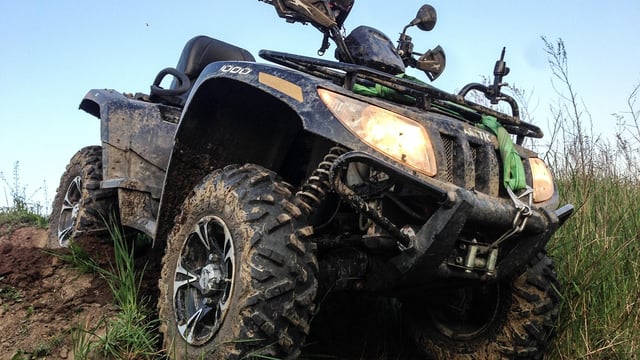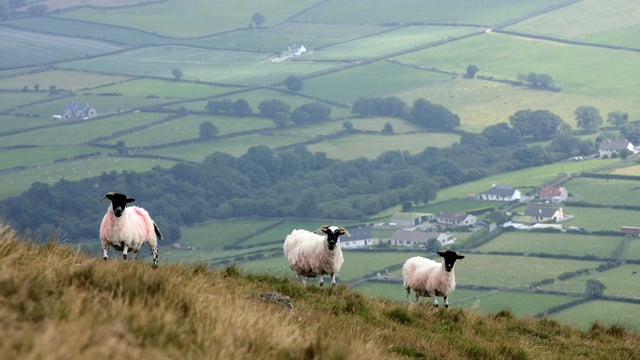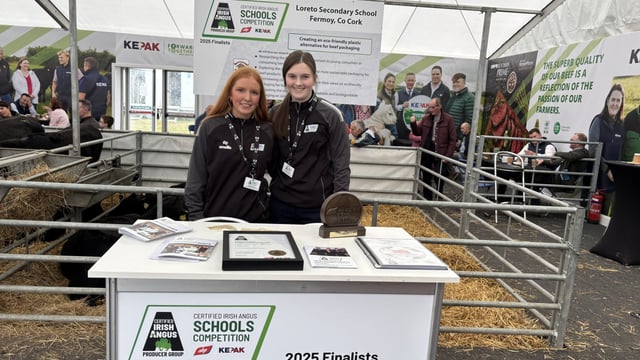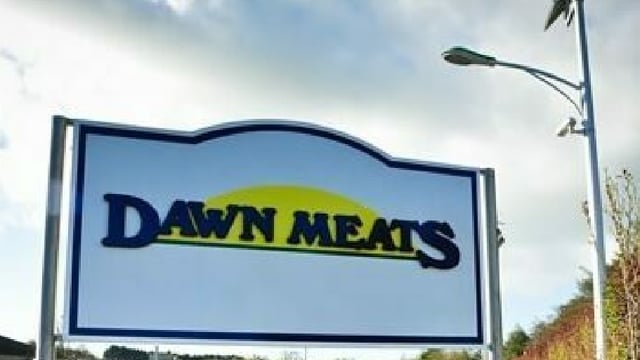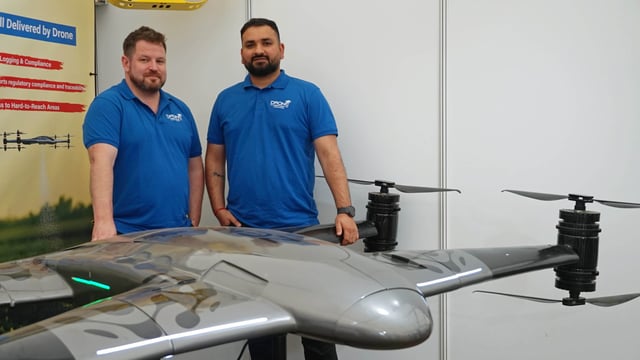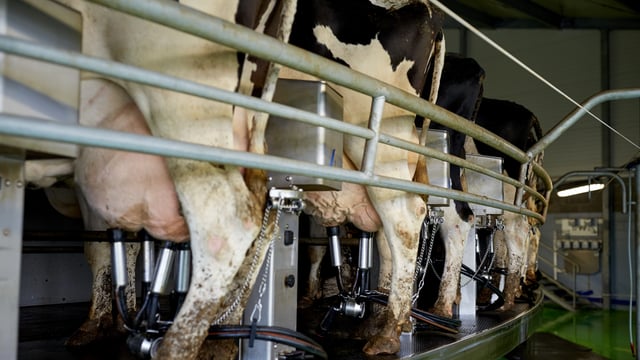Watch: Data driven decision making through a bulk tank sample
Farmers can avail of a new technology that can find the individual cell count of individual cows by picking up their DNA in a bulk tank sample.
Munster Bovine and Progressive Genetics, in association with the Irish Cattle Breeding Federation (ICBF), recently launched Genocells, a technology that allows dairy farmers to determine individual somatic cell counts (SCC) using a single bulk tank milk sample.
Agriland spoke with chief executive of Munster Bovine, Martin Kavanagh at the National Ploughing Championships 2025, who described Genocells as a "really interesting product".
He continued, "it sounds simple that we take this one sample and we find out this information about all the cows in the herd, but the unique thing about this is it is very simple at farm level".
However, Kavanagh commented that it isn't as straight forward behind the scenes from the complexity of the technology used and to fine art of harvesting these individual DNA samples from a small sample of milk.
The chief executive of Munster Bovine also added that there are over 4,500 dairy herds that have over 90% of their herd genotyped, with about 3,500 of those are milk recording.
In order to avail of Genocells, farmers must have their herd genotyped and complete four milk recordings in a year, as this information is needed to identify the DNA and to also indicate the proportion of milk an individual cow is contributing.
Bulk tank sample driving decisions
Genocells works by extracting the DNA from the somatic cells in the milk and comparing the genotype of this extracted DNA to the recorded genotype of the cows contributing milk to the bulk tank.
As somatic cells are the only milk components that contain DNA, the percentage of DNA that each cow contributes to the overall DNA volume in the bulk tank is equivalent to the percentage of somatic cells that each cow contributes to bulk tank SCC.
Individual SCCs are then calculated using the percentage cellular responsibility, the percentage of the milk volume that the cow contributed to the tank (calculated using milk recording yields), and the bulk tank SCC result.
Genocells' SCC results are reported using bands (0-50; 51-199; 200-249; 250-499; 500-999; 1000+).
Kavanagh highlighted that the time from farm sample collection to receiving results was consistently within seven days, ensuring a quick and efficient service.
Kavanagh pointed out that Genocells will provide more points of information over and above the four milk recordings to manage herds with high or fluctuating cell counts.
"Add in Genocells when people are doing a limited number of milk recordings to give them that little bit more information to make decisions about cows, particularly coming up to dry off".
More data about individual cows leads to more data-driven decision-making regarding dry cow therapy, cow retention, and breeding decisions.
Genocells is also suitable for low cell count herds that experience spikes in cell count throughout the milking season, as it is a simple and convenient way of identifying high SCC cows relatively quickly.
Kavanagh added: "Genocells is that add on. We stitch it in through it to get those other unique points of information, to help people make good decisions around their somatic cell count".
Also highlighted was the amount of work that is constantly going inside farms and the difficulty of staying on top of cell counts and carrying out milk recordings during busy periods.
According to Kavanagh, Genocells can take some of that pressure off, by getting that information across and helping farmers stay on top of poor performing or problem cows.

